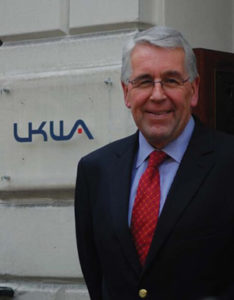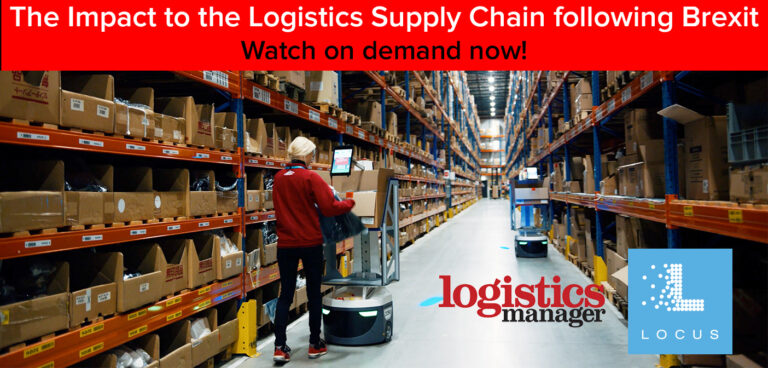Supply chain operations across the UK and EU are under pressure like never before. The pandemic, Brexit and outdated fulfilment models are all contributing to a major rethink on how supply chains operate. The participants will offer valuable thought leadership on what companies need to do to address the challenges and develop more sustainable models of operation in the new normal.
Topics for discussion;
Within the UK and European warehouse sector, the traditional model adopted by fulfilment centres for dealing with peak periods has been the subject of much debate – even before the pandemic.
Volume fluctuations in peak periods can have serious implications on labour provision. During peaks, fulfilment warehouses can often need up to six times the normal size of workforce to service growing order volumes. But as the ecommerce sector grows, drafting in huge armies of temporary workers to cope with seasonal spikes has become increasingly unsustainable.
Rising labour costs and the availability of workers in a shrinking labour pool was already forcing many companies to consider change; add to this the effects of the pandemic and the need to have socially distanced warehouses, plus Brexit, then pressure on even the most robust of supply chains has been severely tested.
The challenges of Brexit, especially on sourcing temporary workers, is having major implications for the UK. Many multi-national operations are now seeking warehouse locations outside of the UK on the European mainland to maintain continuity of supply. There are plenty of incentives available to locate a business in the EU, for example in the Netherlands or Belgium, so what can the UK do?
A more sustainable solution is required.
Planning ahead has enabled some fulfilment businesses to install the automation needed to maintain productivity – even when the pandemic hit. Effective automated solutions will reduce the need for such volumes of temporary labour and free up the existing workforce to be redeployed where they can be of most use.
Register below to watch on demand;
The impact to the Logistics Supply Chain following Brexit
Meet the speakers;

Denis Niezgoda, Vice President, Europe at Locus Robotics
Denis is an accomplished leader with an impressive history of advancing innovative solutions, including autonomous aerial vehicles, mobile robots, and robot piece picking applications into global warehouse operations. He currently serves as Director of Business Development – Europe for Locus Robotics, leading strategic and operational initiatives aimed at increasing Locus’s European portfolio. Before joining Locus, Denis led the Global Robotics Acceleration Program at DHL. In this role, he scouted, tested, advised, and deployed the latest automation and warehouse technologies across diverse industries in over 30 countries. Denis’s rich international business background, extensive warehouse experience, and passion for innovation allow him to quickly strengthen Locus’s European presence while also expanding existing customer programs. Denis holds a Master of Business Engineering from Steinbeis University of Berlin.
 Peter Ward Chief Executive @UKWA
Peter Ward Chief Executive @UKWA
Peter Ward has more than 35 years’ experience in international transportation and logistics and is recognised as a principal authority in global supply chain management, based on his achievements at director level with some of the world’s leading global logistics providers. He took the helm of the UK Warehouse Association in 2015 following the decision by Roger Williams to stand down from his role. Prior to joining the UKWA, Ward served as Commercial Director and Head of Cargo Supply Chain at London Gateway. A graduate of the Institute of Export and Member of the Chartered Institute of Logistics and Transport, his career started in the export shipping department of Courtaulds plc. He then joined his family’s freight forwarding company, DH Ward (Shipping) Ltd, where he became Managing Director. In 1994 he masterminded the company’s merger with American-owned Fritz Companies, which under his leadership became a top-five forwarder in Europe prior to acquisition by UPS in 2001.
 Nick Bradley Editor at Logistics Manager
Nick Bradley Editor at Logistics Manager
Nick was appointed Editor of Logistics Manager in April 2021, roughly 22 years after cutting his teeth in journalism working within the Handling Division of DMG World Media opposite former LM editor Malory Davies. He subsequently spent 15 years as Editor and Editor-in-Chief of numerous B2B titles covering industrial vehicle design and engineering, intelligent transportation systems and even launched technology publications focusing on ADAS, autonomous vehicles and winter resort operations. After a five-year spell running a Top 100 Amazon third-party seller company, he has found his way back to his first love, publishing, via an events company specialised in sustainability-themed conferences where he tried to rid the world of plastic pollution and electronic waste.
 Stephen Murrell Senior Director of CSO @Manhattan Associates
Stephen Murrell Senior Director of CSO @Manhattan Associates
Steve leads Manhattan Associates customer support and consulting teams across the EMEA and APAC regions, being ultimately responsible for the success of Manhattan’s customers in achieving their business goals and gaining optimum ROI from their solutions. He has over 20 years experience deploying supply chain systems for global organisations on strategic projects across Europe, including in project consulting, software design and management roles. His trusted relationships with many customers across multiple verticals and industries will provide first hand insight into where business are investing to innovate and stay ahead of the competition, how Manhattan’s customers are preparing for and dealing with peak season challenges, and clear trends that are emerging during the recent period of unprecedented turmoil and upheaval.







